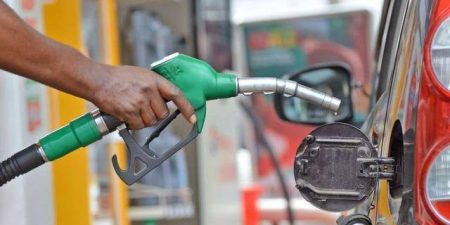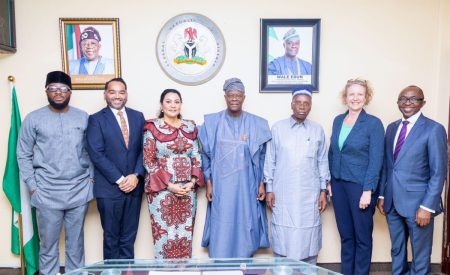
Adebiyi Adesuyi
06 February 2016, Lagos — Nigeria is a lower middle income country in Africa. According to the World Bank, its Gross Domestic Product (GDP) at 2014 was $568.5 billion. Its population was 177.5million at 2014. The life expectancy of every Nigeria at birth is 52 years while the Gross National Income per capita is $2,970.
Inadequate power supply is a major impediment to Nigeria’s development . The data obtained from the World Bank (data.worldbank.org) revealed this problem: Electricity power consumption per capita in Nigeria in 2012 was 156kwh compared to Britain’s 5,452kwh, United States’ 12,594kwh and South Africa’s 4,452kwh.
The seventh item on the list of Sustainable Development Goals states thus, ‘Ensure access to affordable, reliable, sustainable and modern energy for all’. In view of this, it becomes important and necessary for Nigeria to develop its power infrastructure to meet the domestic needs of businesses and individual citizens.
There have been failed attempts by the Government to upgrade power infrastructure in Nigeria. The failure was caused by a number of problems which included poor project planning, corruption of public officials, extension of contracts to incompetent contractors, and inability to attract adequate funds due to unfriendly business environment. Some of these problems are documented in the World bank’s Ease of Doing Business Report.
For instance, the Ease of Doing Business in Nigeria in 2016 (www.doingbusiness.org/data), among the 189 economies covered by the World Bank, Nigeria is ranked as follows: Getting Electricity(182), Enforcing Contracts(143), Paying Taxes(181), and Protecting Minority Investors(20). It should be noted that the best rank is (1) and the worst is (189). This report shows that Nigeria must improve its investment climate in order to attract long term funds for the development of its infrastructure.
The first step to a successful development of power infrastructure involves good project preparation. The Nigerian Government must engage the World Bank so that it can use the expertise of its staff to get a sound project preparation done. Infrastructure projects become bankable and attractive to investors when they are designed by experts. In addition, the World Bank and other Multilateral agencies should be encouraged to assist in hiring competent contractors for successful project execution.
The next step , which is very crucial, is the provision of finance for the power infrastructure project. Blended finance will be the right approach. It will be able to mix public social return objective with the financial return objective of the private sector. For the private sector to provide adequate funds, risk must be reduced while expected returns remain high.
Official Development Assistance(ODA) can help with its concessional loans and grants. According to aidflows.org, Nigeria received $785.25million ODA in 2014. A large portion of ODA can be disbursed to fund power infrastructure. Contribution of about 5% from ODA will crowd-in finance from the private sector.
Considering the risk profile of Nigeria, the Multilateral Investment Guarantee Agency(MIGA) can be approached to provide guarantee for Nigeria’s power infrastructure project. The guarantee will mitigate risk and encourage Foreign Direct Investments to flow into the project.
Domestic Resource Mobilization(DRM) will play a big role in financing power infrastructure. Tax revenue from the public sector can be deployed to provide about 20 percent of the financial cost. Then, domestic private sources such as Sovereign Wealth Fund and Pension Fund will provide the balance.
According to Nigeria Sovereign Investment Authority, the country’s Sovereign Wealth Fund has $400 million in its Infrastructure Fund. The Nigeria Infrastructure Fund focuses on domestic investment in selected infrastructure. As power infrastructure is eligible to benefit from the Fund, this is a large pool that is waiting to be utilized.
Pension Fund is a growing segment of the financial market. As at today, the assets of Pension Fund in Nigeria are in excess of $22.5 billion . The law permits pension fund to invest up to 20 percent of this fund in infrastructure. Again, this is a big source of finance for power infrastructure in Nigeria.
Remittances can be innovatively used to finance power infrastructure. According to FBN Capital, $21.9 billion was remitted to Nigeria by her citizens living abroad in 2014. Currently, all remittances go to family members of the senders. However, the Government can develop Diaspora Bond that will enable her citizens living in foreign countries to channel a great percentage of their remittances into power infrastructure and other economic projects. Israel and India have used Diaspora Fund successfully.
For all these to be achieved, the Government must have respect for the rule of law. The Nigerian Electricity Regulatory Commission must ensure that electricity is appropriately priced: making it affordable to consumers while assuring investors of sustainable profits.
Power infrastructure deserves priority in a modern economy. It is a determining factor in successful industrialization, agriculture, financial systems and other areas of life. The Nigerian government and private sector institutions must work together to make great things happen in the power sector. Nigeria will then be positioned to achieve all the Sustainable Development Goals(SDGs). Nigeria must be a success story when the reports on SDGs are being presented in 2030.
Adesuyi, an economic consultant writes from Lagos.



